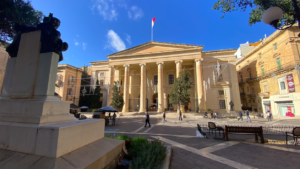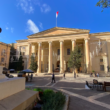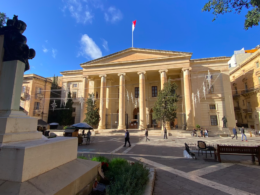In a country where judicial decisions often seem untouchable, a rare voice from within the legal community has again sounded a note of concern. Dr Peter Fenech, the President of the Chamber of Advocates, has called for greater oversight over the judiciary’s power to appoint court experts, arguing that unchecked spending on foreign experts is placing an enormous financial burden on the system. His comments are not just a lone complaint but form part of a 20-year effort to address a deep-rooted issue that continues to generate heated debate.
The Cost of Expertise: A Broken System?
In a recent interview with The Malta Independent, Fenech did not hold back. He expressed frustration uncontrolled spending by the judiciary on court-appointed experts. According to Fenech, this problem stems from the fact that magistrates and judges can, with little oversight, appoint experts at almost any cost, leaving the taxpayer to foot the bill. Fenech argued that there is a lack of transparency and accountability, and that this is not a new problem.
Indeed, Fenech’s concerns are not new. He has been vocal about the issue since at least two decades back, as evidenced by his previous criticisms of the judiciary’s near-unlimited power to assign experts to court cases. He has consistently called for tighter controls and more effective discipline, both for members of the judiciary and lawyers. But despite years of complaints, little seems to have changed.
A Legal Culture of Silence

It is not easy for practising lawyers in Malta to come out in public with criticisms of the judiciary. Most who do tend to risk jeopardising their careers, given the close-knit nature of Malta’s legal community. Yet, Peter Fenech does not mince his words. His position as the President of the Chamber of Advocates give his comments an unusual weight.
Fenech’s critique goes beyond the occasional waste of public funds—he is highlighting a broader problem within Malta’s judicial system. In essence, the powers granted to the judiciary to appoint experts are simply too wide, and there is no scrutiny of these appointments. Fenech’s outcry taps into a sentiment that many in the legal world may share but are reluctant to voice.
The €11 Million Question
Perhaps the most glaring example of this issue is the recent case involving Magistrate Gabriella Vella’s appointment of experts for the Vitals inquiry. The inquiry, which spanned four and a half years, ended up costing €11 million—a staggering sum by any standard. To put this into context, the experts hired by the court were paid €2.5 million annually. This massive disbursement of public funds evaded the scrutiny of public procurement rules.
This level of expenditure is equivalent to employing 50 local company CEOs for the entire duration of the inquiry. Was this kind of spending truly necessary? The answer seems far from clear. What is even more concerning is the question of whether due diligence was carried out in appointing these experts. Among them was Sam Sittlington, whose controversial past in Guyana raised serious red flags. How someone with such a record came to be involved in a Maltese judicial inquiry remains a troubling mystery.
A Call for Reform
This case highlights what Fenech and many others see as a crucial need for reform. While few would argue that the judiciary should not be empowered to seek expertise in complex cases, the current lack of oversight is difficult to justify, particularly when public funds are being spent so freely. The controversy surrounding the Vitals inquiry has brought this issue to the forefront, but it is clear that this is a systemic problem that goes beyond a single case.
Peter Fenech’s call for “more effective discipline” against members of the judiciary and legal professionals cannot be ignored any longer. His position may be unusual for a practising lawyer, but his concerns are shared by many. Unchecked judicial spending on court-appointed experts is not just a financial burden; it also threatens the integrity of Malta’s legal system. It is high time that Malta’s judiciary is held to the same standards of transparency and fiscal responsibility that we expect from other public institutions.
If you or someone you know has been affected by judicial decisions that lack transparency, share this article on social media or send it to a friend. The need for reform is pressing, and public awareness is the first step towards accountability.







